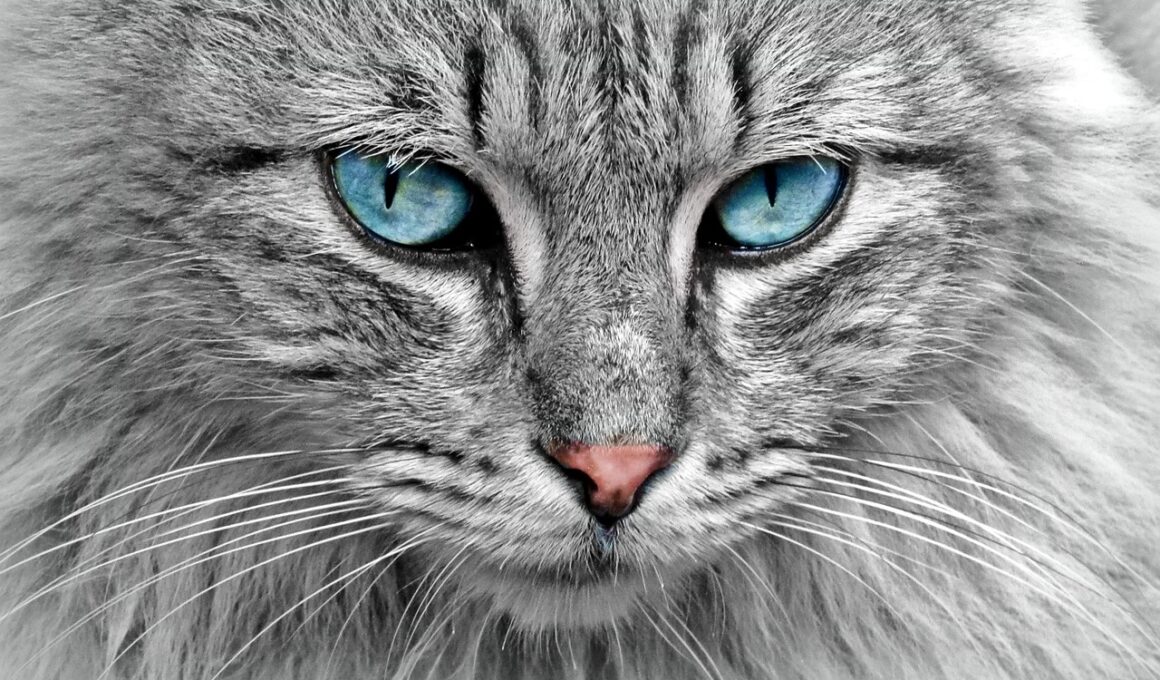How to Choose a Veterinarian for Your Cat’s Dental Care
When selecting a veterinarian for your cat’s dental care, it’s crucial to start with thorough research. A good vet should have specialized training in veterinary dentistry or a proven track record in performing dental procedures. Look for local veterinary clinics or hospitals that have credentials from recognized organizations. Online reviews can be incredibly helpful here, as well as word-of-mouth recommendations from fellow pet owners. An initial visit to assess the facility’s cleanliness and overall atmosphere can reveal a lot about its quality. Ensure that the veterinarian is friendly and willing to address all questions you have about the dental care process. Be sure to ask about their experience specifically with feline dental procedures, as cats have unique dental health needs compared to other animals. Furthermore, it is essential to verify that the vet’s clinic provides essential dental services, such as cleanings and extractions, using modern equipment and anesthetics. Ensuring the veterinarian’s practice meets these standards will make a significant difference in your cat’s dental care experience.
Once you have narrowed down your options, consider scheduling an initial consultation. During this visit, you can gauge the veterinarian’s demeanor and professionalism, which are critical for a positive grooming experience. While at the clinic, observe how the staff interacts with animals and their owners. A caring and patient team will significantly impact your cat’s comfort level during dental check-ups. Moreover, inquire about their dental care protocols. The clinic should practice thorough dental exams and cleanings, ensuring safety measures are in place. It’s also important to find out about the types of anesthesia they use, especially since older cats may require more specialized approaches. Don’t hesitate to ask how often they recommend dental exams; most experts suggest every six months to prevent serious issues. An open dialogue about the potential risks and benefits involved in the dental procedures will help you feel confident in the veterinarian’s judgment. Clearly understanding these aspects will contribute to a long-lasting and trusting relationship between you, your cat, and their veterinarian.
Understanding Veterinary Dental Care
Understanding the scope of veterinary dental care is essential when selecting a practitioner. While many veterinarians offer general veterinary services, dental care requires a specialized focus. Ensure that the veterinarian you choose is not just knowledgeable about pet care in general but also has specific training in dental issues common among cats. This expertise is vital, as cats are prone to distinct dental conditions such as gingivitis, broken teeth, and periodontal disease. Furthermore, it’s advisable to choose a veterinarian who utilizes modern diagnostic tools, like digital X-rays for dental assessments. This technology can help detect hidden problems under your cat’s gum line, leading to early and more effective treatment options. As you discuss dental care, pay attention to how they educate you about the importance of regular check-ups. A good veterinarian will explain not only what to expect during a dental exam but also provide tips on at-home care that can help maintain your cat’s dental hygiene between visits. Remember that preventive care is often more vital than reactive treatments.
Another significant factor to consider is whether the clinic prioritizes ongoing education. The field of veterinary dentistry is always evolving, and staying updated is essential. A veterinarian who actively participates in continuing education will have better insights into new techniques and treatments. This dedication is also indicative of their commitment to providing the highest standard of care. Ask the veterinarian if they attend conferences or seminars related to dental health. Furthermore, inquire about their approach to treating dental conditions. Compare techniques such as dental cleanings and whether they recommend more advanced procedures based on your cat’s unique needs. A veterinarian who discusses treatment options in detail and considers your input is more likely to respect your choices regarding your cat’s health. They should also be responsive to any signs of discomfort your cat shows throughout visits. Active communication and sensitivity to your pet’s well-being will lay the groundwork for a trusted relationship, ensuring smooth dental check-ups in the future.
Preparing Your Cat for Dental Visits
Preparing your cat for their dental visits is an essential responsibility that can ease the process for both you and your pet. Start by acclimating your cat to the carrier or travel case well ahead of the appointment. Create positive associations through treats and playtime when inside the carrier. This strategy can minimize anxiety and make trips to the vet less stressful. Additionally, consider practicing handling your cat’s mouth and teeth gently at home. Regularly check their teeth for any signs of decay or discomfort. This will make it easier for the vet to perform a thorough examination during check-ups. While brushing your cat’s teeth isn’t always feasible, familiarizing them with tooth care can lead to better cooperation. On the day of the visit, avoid feeding your cat beforehand if the vet recommends fasting; this preparation is particularly important if anesthesia will be used. Remember to bring any relevant medical history documents to provide the veterinarian with a clearer picture of your cat’s dental health.
Once you’ve prepared your cat and established a good rapport with the veterinarian, fostering consistent communication becomes imperative. Keep a record of your cat’s dental health over time, documenting any changes or issues you observe. This information will prove invaluable during each visit, allowing both you and the vet to determine if any additional interventions are needed. Encourage open discussions about treatment plans and any concerns you may have. The veterinarian should provide a clear roadmap for your cat’s dental health journey. Inquire about preventive care measures, such as recommended diets and at-home dental care products. Remember, not all cat dental products are created equal. Seek out products that the veterinarian recommends to ensure safety and efficacy. Additionally, if you notice any unsettling behavior, bleeding gums, or other signs of dental distress after a treatment or check-up, reach out to the veterinarian immediately. Your proactive approach will not only maintain your cat’s dental health but also establish a strong foundation of trust with your veterinarian.
The Importance of Ongoing Care
The importance of ongoing dental care for your cat cannot be overstated. Regular dental check-ups at the veterinarian’s office are vital for preventing severe dental diseases that can affect your cat’s overall health. By adhering to the recommended check-up schedule, you can manage potential dental issues before they escalate into complicated health concerns. Cats, like humans, are prone to plaque buildup and periodontal diseases if oral care is neglected, leading to painful conditions and infections. The effects of poor dental health can also overflow into other areas of your cat’s health, potentially affecting their internal organs. Thus, a proactive approach to feline dental care can enhance their quality of life and longevity. Furthermore, veterinarians often provide insights into changes in your cat’s oral health that you might overlook. Make it a standard practice to discuss concerns and observations at every visit. Such discussions can help the vet tailor a dental care strategy specific to your pet’s lifestyle, promoting a sustainable and healthy oral hygiene routine.
In conclusion, selecting the right veterinarian for your cat’s dental care involves various critical steps. From the first research phase to maintaining ongoing communication, you must play an active role in your cat’s dental health journey. Prioritize a veterinarian with specific dental training, and ensure their practice is independently vetted and well-reviewed. Then, prepare your cat for visits to create a more stress-free experience. Don’t forget the essential follow-ups after treatments, as they play a crucial role in their continued care. Encourage regular check-ups to address any emerging concerns proactively. Finally, always stay informed about the latest dental care practices, and don’t hesitate to ask questions during your consultation. Your cat’s health relies on mutual trust and open dialogue with your veterinarian. By ensuring they receive optimal dental care, you’re not just maintaining their mouth; you’re also ensuring overall well-being, safeguarding their future, and fostering a loving relationship that lasts for years. With diligence and the right veterinary partner by your side, your cat can enjoy a healthy smile.


